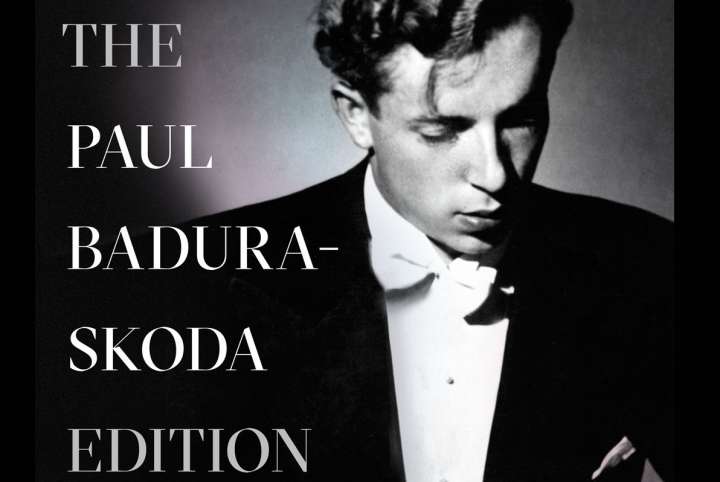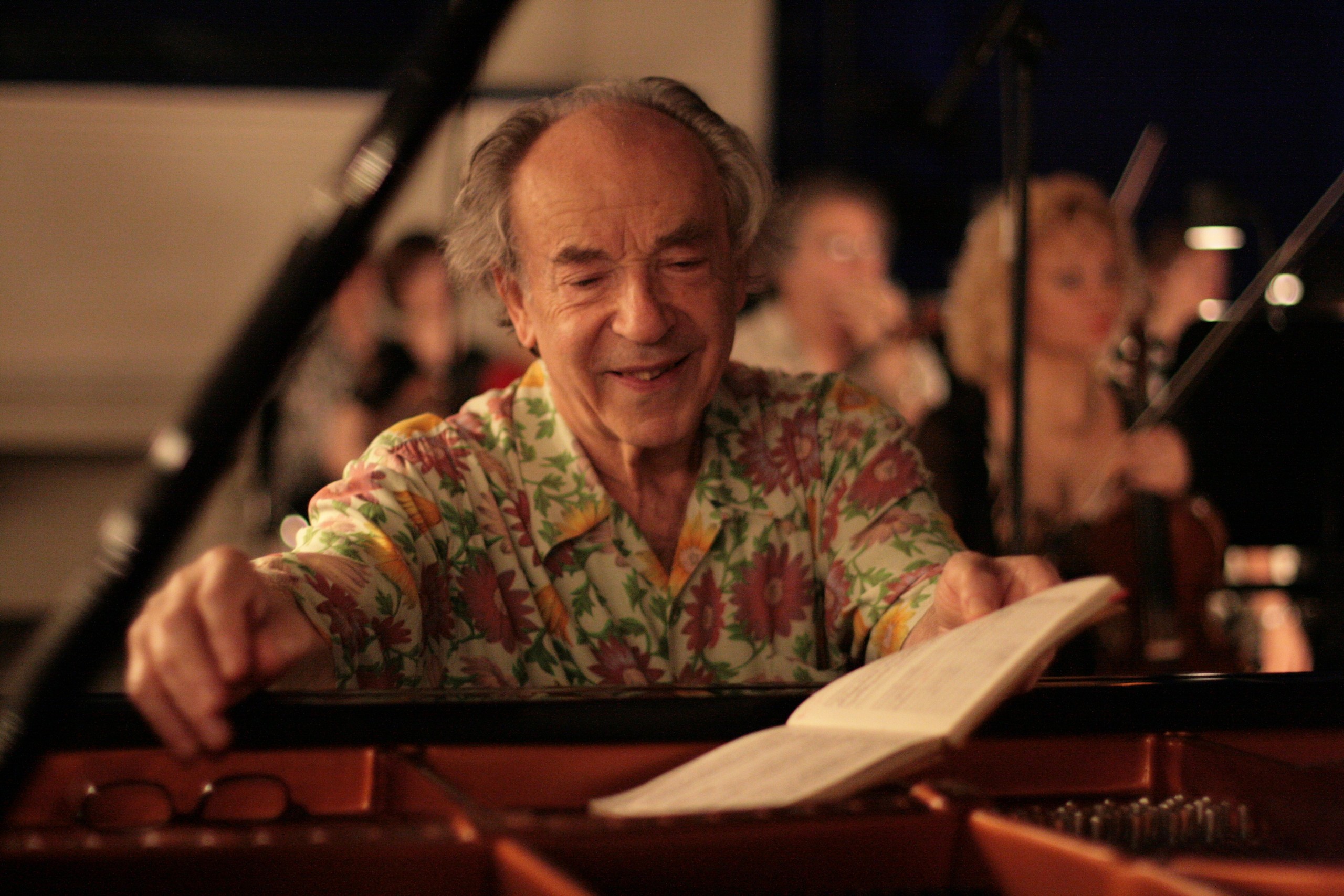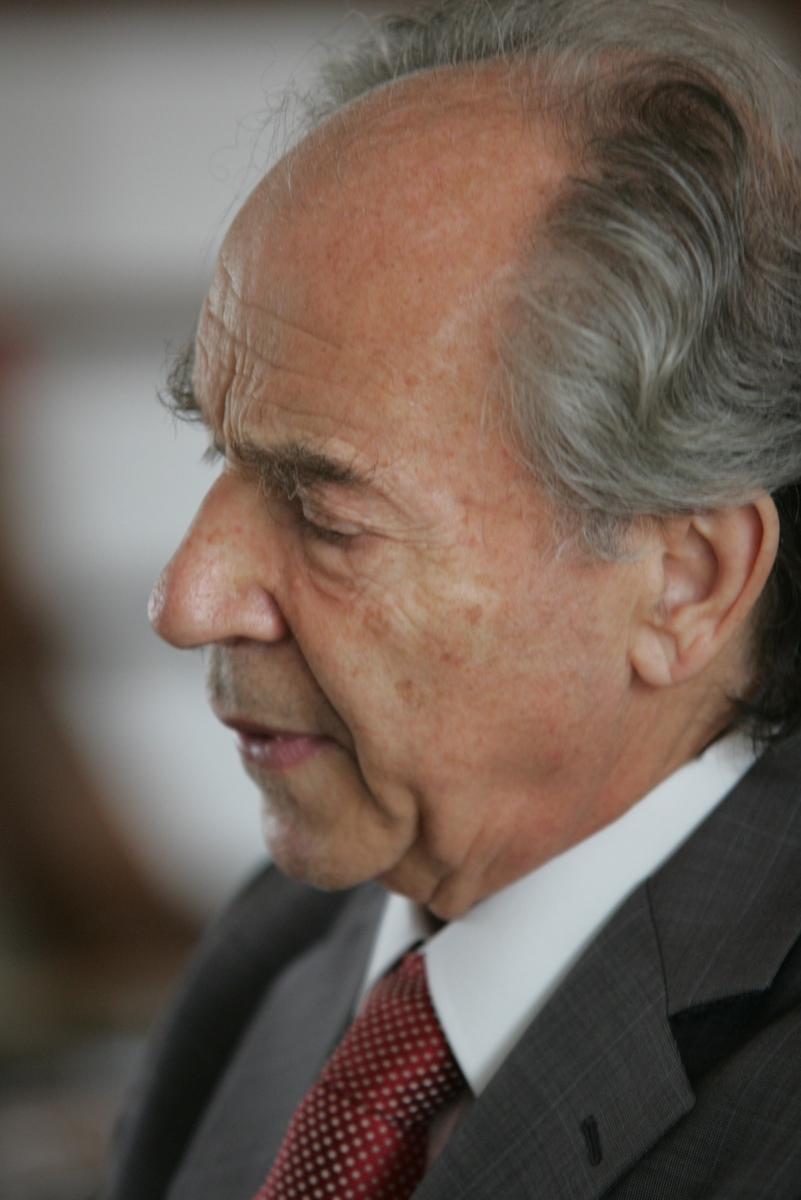For more than 60 years, Paul Badura Skoda has been one of the great international pianists. His interpretations of Mozart, Beethoven and Schubert are legendary. A guardian of the Viennese sound, a collector of old instruments and an enthusiastic teacher for his students.
“He has been heard for almost six decades in the great concert halls of this world and he did not allow himself to be put off until he was old. On October 15, 2017, Badura Skoda gave a completely sold-out concert on the occasion of his shortly celebrated 90th birthday in the Golden Hall of the Wiener Musikverein. Decisive for the beginning of his great career were three events: Furtwängler and Karajan hired in 1949 the still unknown artist for their concerts in Vienna, and by stepping in for the ill Edwin Fischer at the Salzburg Festival in 1950 he became an international star.
We had it easy because back then the vinyl records industry invented the LP, and suddenly there was an uncanny need for new literature. On the other hand, it was somehow the immediate post-war period, when there was no television yet, where people still went to the movies and to the concert and the opera, especially the youth. We were not that many, there was not the flood at that time, especially the many East-Asian pianists.
The number of pieces in his repertoire, he has long lost track about. But if he would have played it in one take, he claimed to have sat on the piano for well over 24 hours. Noteworthy is also his “vinyl Opus”, which includes well over 200 recordings, including the complete piano sonatas of Mozart, Beethoven and Schubert. But there were always works from the 20th century in his program. Paul Badura Skoda's motto: “Practice, practice, practice - and everything else is secondary”.
Together with his wife Eva Badura Skoda, he also appeared as a music writer and publisher of works editions in appearance. These and his numerous recordings are preserved for posterity” honors the renowned radio program Ö1 of the Austrian Broadcasting Corporation (ORF) in its “Mittagsjournal” this unique artist.
"With him, decades of piano art come to an end, which almost never started," wrote the ORF in its online news. “Paul Badura-Skoda, who was born in Vienna on October 6, 1927, actually wanted to become an engineer. The curiosity to look behind the exact functioning of pieces of music and the passion for collecting historical instruments remained beyond this former career aspiration.

However, his musical talent was early recognized and promoted, but crucial to his career were not least the concert experiences in performances by Edwin Fischer or Wilhelm Furtwängler during the war. “I noticed in wartime that there is a power in music that survives destruction" he once remembered in a thanking speech.
With just those idols, he came in touch a little later. Only two years after starting his studies at the Vienna Conservatory, he won the first prize of the Austrian Music Competition and received a scholarship for a master class with Fischer.
"The heating material was so tight at the time that I only practiced fast pieces so that my fingers would not freeze on the keys", Badura-Skoda explained with a wink the rapid development of his technique. Furtwängler and Herbert von Karajan first became aware of the young pianist in 1949, and their invitations to international concerts virtually made him famous overnight. His first appearances in Salzburg, New York and Tokyo remained remembered as sold-out debut. The following 70 years he spent with tireless performances at the most important festivals and the most important concert halls in the world.
Also noteworthy is the multi-worker’s vinyl records oeuvre, which includes over 200 recordings, including the complete piano sonatas by Mozart, Beethoven and Schubert. Two years ago Gramola released a CD containing Liszt's B-minor Sonata twice - he could not decide for himself which one he preferred, writes Badura-Skoda in the booklet. Both bear witness to an unshakeable nobility of piano playing, which in this piece has something anachronistic in the most beautiful way.
As a teacher, Badura-Skoda has spent many years devoted to nurturing young people, an obligation he himself fulfilled this year. Also as a collector, the technically interested Badura-Skoda made himself renowned: A comprehensive collection of valuable keyboard instruments, as well as a large archive of autographs and original manuscripts testify to his desire to the technical functioning of music, both in their theoretical development and in their instrumental realization.

Extensive is also his collection of awards. In 1976 he was awarded the Austrian Cross of Honour for Science and Culture, two years later the Bösendorfer Ring, and in 1998 the Gold Medal of the City of Vienna. For ten years he has been the bearer of the Great Silver Medal for Merit for the Republic and the Golden Medal of Honour of the City of Vienna. And in the previous year, the Vienna Music University awarded Badura-Skoda the honorary membership ".
The newspaper "Die Presse" writes: "Paul Badura-Skoda, guardian of the Viennese musical tradition, is dead. He was one of the most important pianists who emerged from the Viennese school.
Badura-Skoda - as a trained music director and musicologist - was able to read scores accurately, weigh up different interpretive possibilities and translate the results of his research into sounding practice. His rich collection of historical instruments also teaches him what tonal possibilities the pianos have offered since the invention of the so-called Fortepiano, which was understood under Beethoven's time as a hammer-piano and to what extent relevant truths can and must be applicable to the performance of classical works on modern instruments.
Thus, the youthful summiteer, who incidentally was the first pianist to venture into communist China after the Cultural Revolution, became a tireless champion for the maintenance of the Viennese musical tradition in the light of recent discoveries in musical research. He took his mediating role as serious as his interpretive claims. Together with his "piano twin" Jörg Demus, with whom he used the rich four-handed piano repertoire, he developed in the Beethoven year in 1970 a complete recording of the piano sonatas of the master, as a television production. The Mozart year of 1991 was followed by a solo tour of Badura-Skoda, which took him around the world with works by the composer. Even at the age of 80 Badura-Skoda did not tire of traveling.”
He has been connected to Bösendorfer for many years and even played a Bösendorfer grand as a child. “What I like about Bösendorfer is the singing sound as well as the evenness in all registers. The balance between the reverberation and the attack—this is unique”. Paul Badura-Skoda has held the Bösendorfer Ring since 1978, a distinction previously bestowed only upon one person, namely Wilhelm Backhaus. Bösendorfer awards the ring for embodying the tradition of Viennese music-making.
